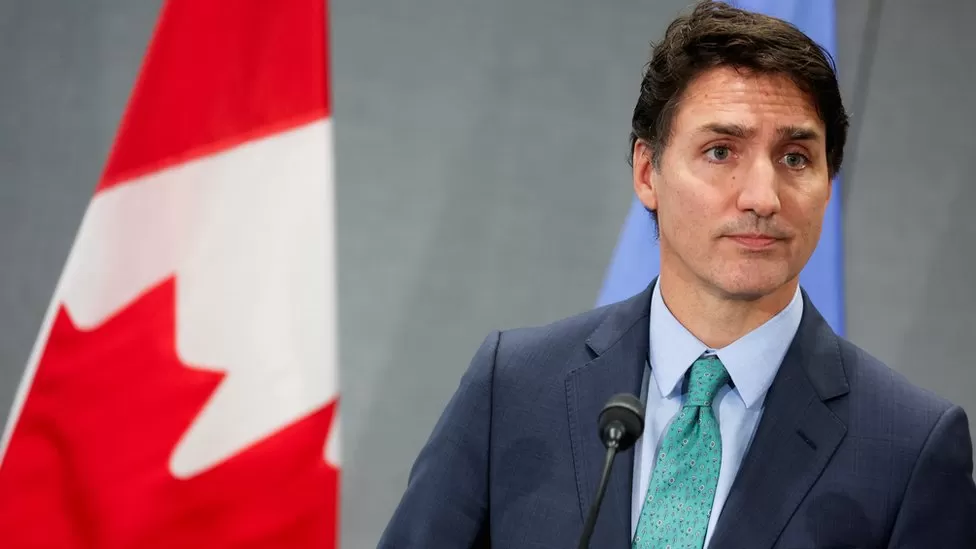Canadian Prime Minister Justin Trudeau has said his country is serious about building closer ties with India despite an ongoing diplomatic row.
His latest remarks come at a time when ties between the two countries are at an all time low.
Tensions flared up when Mr Trudeau on 19 September said Canada was investigating credible allegations of India’s involvement in the murder of a Sikh separatist leader.
Delhi dismissed the claim as “absurd”.
Hardeep Singh Nijjar was murdered outside a temple in Canada in June.
On Thursday, the Canadian PM said it was extremely important to “constructively and seriously” engage with India.
“India is a growing economic power and important geopolitical player. And as we presented our Indo-Pacific strategy just last year, we’re very serious about building closer ties with India,” the National Post quoted him as saying.
Tensions between the two countries came to the fore during the G20 summit in Delhi on 9 September when Mr Trudeau skipped an official dinner of the leaders.
He held a short meeting with Indian PM Narendra Modi but experts described their body language as “frosty”.
A few days later, Mr Trudeau told Canadian parliament they were pursing credible allegations of the involvement of Indian agents in Nijjar’s murder.
Both countries have since expelled a diplomat each of the other nation. Last week, India also suspended visa services for Canadians citing security concerns at its diplomatic missions in the country.
On Thursday, Mr Trudeau talked about the importance of relations with India but added that the murder investigation would continue.
“At the same time, obviously, as a rule of law country, we need to emphasise that India needs to work with Canada to ensure that we get the full facts of this matter,” he said.
India has insisted that it had no role in the murder, adding that Nijjar had been designated a terrorist by Delhi in 2020 – an allegation his supporters vehemently deny.
The Indian government has often reacted sharply to demands by Sikh separatists in Western countries for Khalistan, or a separate Sikh homeland.
Nijjar vocally supported the Khalistan movement.
It peaked in India in the 1980s with a violent insurgency centred in Sikh-majority Punjab state.
It was quelled by force and has little resonance in India now, but is still popular among some in the Sikh diaspora in countries such as Canada, Australia and the UK.
The row between India and Canada, who have been close allies for decades, has also tested Western countries.
The US, UK and Australia have urged Delhi to cooperate in the investigation but stopped short of critising India, which is seen by them as bulwark against China’s rise in Asia.
Mr Trudeau added that he had been assured by the US that foreign secretary Antony Blinken would raise the allegations when he met his Indian counterpart S Jaishankar in Washington.
The foreign ministers met on Thursday but made no mention of Canada in their press conference.
Source : BBC


